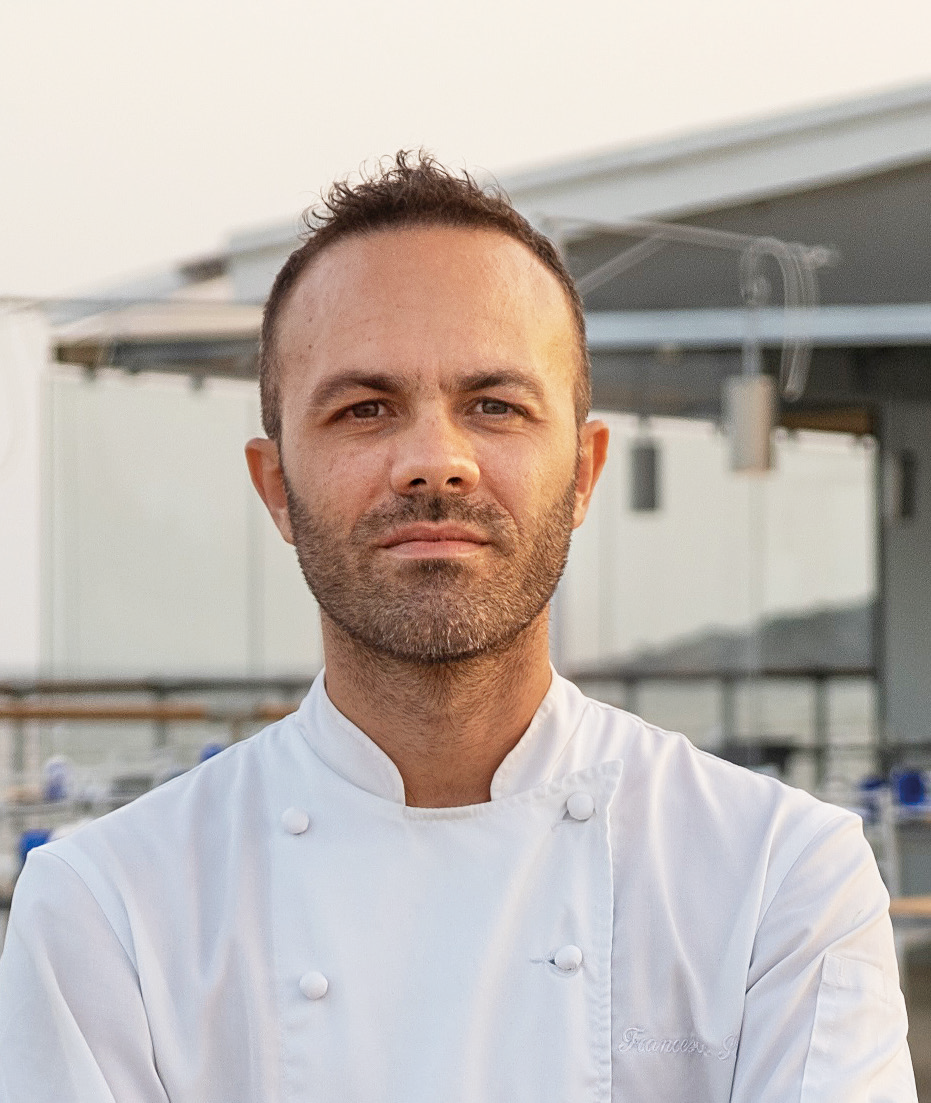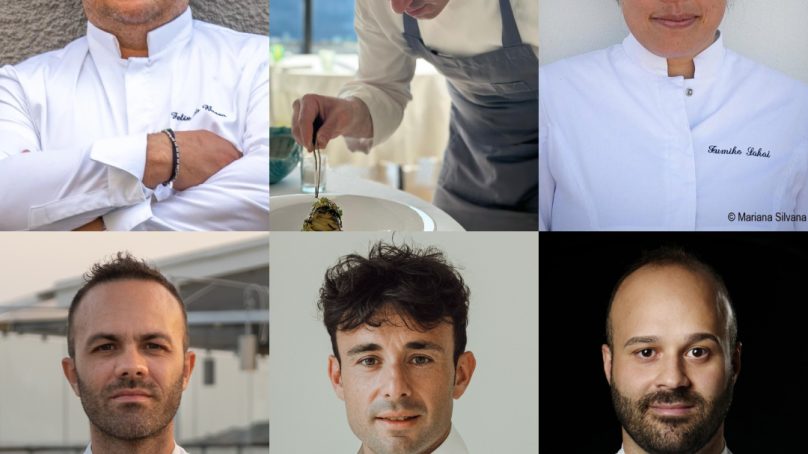
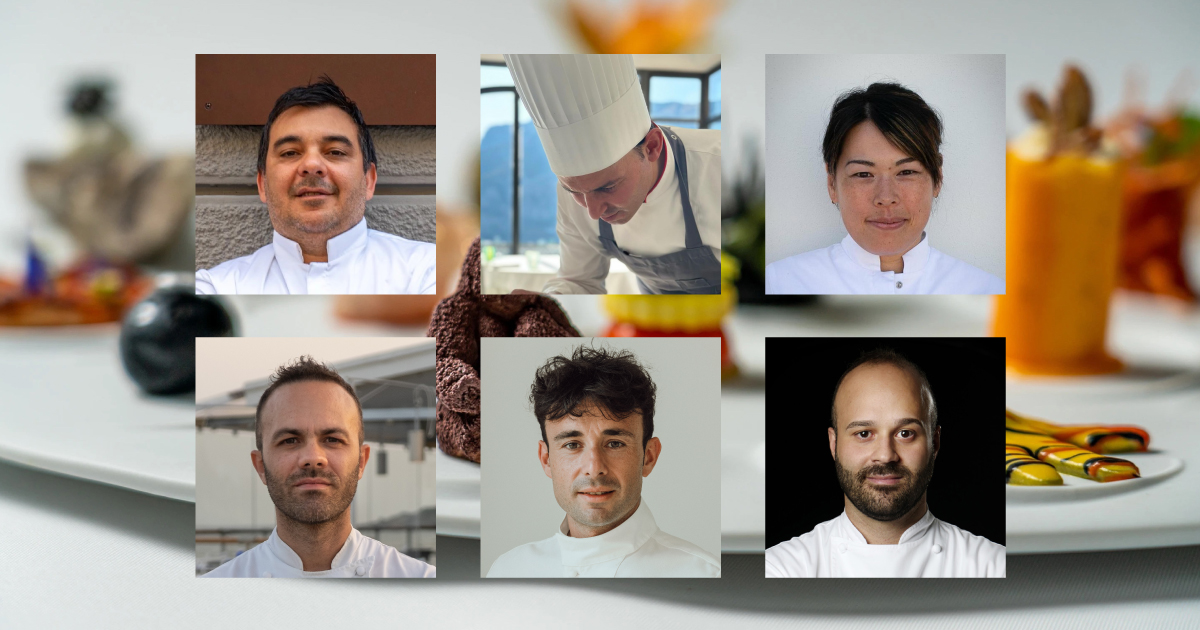
Southern, seasonal delights
Italian cuisine undoubtedly stands out on the global stage due to its regional diversity and the variety of seasonal products. Along with Japan, Italy experiences four distinct seasons which is a major advantage and one that contributes to the rich array of both land and sea ingredients found across the country. The south benefits from longer sunny seasons, which provide an abundance of produce.
As a native of Puglia, I find the rich culinary traditions here and in other southern regions, such as Campania and Romagna, particularly inspiring. Seasonality is fundamental, forming the basis of my culinary philosophy. It is a guiding principle for chefs and diners alike, reminding us of the importance of respecting the natural cycles of ingredients for a more sustainable and flavorful culinary experience.
Balancing tradition with innovation
While traditional cooking methods evolve with time, it’s important to remain true to tradition to preserve the genuine taste of a dish. Preserving authenticity is certainly much more important than following fleeting fads. The secret lies in starting with a traditional base and incorporating new techniques without overshadowing the genuine taste. Understanding the territory, its people and local produce is crucial for maintaining the delicate balance between tradition and innovation. I’m also a firm believer that the essence of authentic Italian flavors comes down in large part to the quality of the ingredients.
Elevating the dining experience
Italian wines are renowned worldwide, but also face cost challenges compared to others found elsewhere. When pairing Italian wines with dishes, it’s important to think of them as complementing each other. The role of wine is integral to Italian cuisine, and selecting wines, especially those produced with care and expertise, should enhance the overall dining experience.
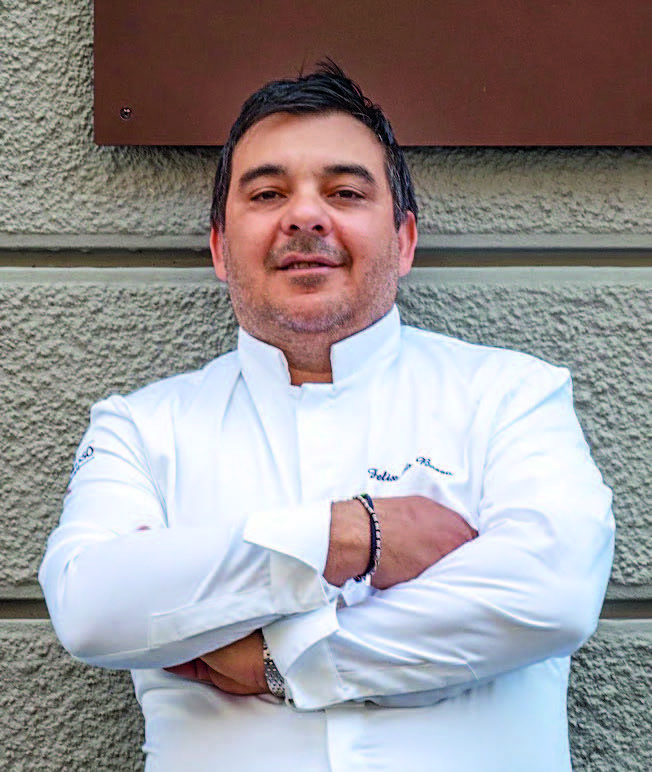
AFELICE LO BASSO
Chef Felix Lo Basso Restaurant Felixlo
bassorestaurant.it
@felixlobassorestaurant
A flavorful experience
From my travels, I’ve concluded that Italian ingredients are always a notch up from others in terms of quality and freshness. It fills me with pride that this is one of the key aspects that sets Italian cuisine apart. Each region has its individual, authentic traditional cooking methods and these contribute to the overall flavors found in Italian cuisine. On a personal level, the culinary traditions of Puglia and Sicily are the ones that inspire me the most. The genuine passion and love that find their way into the dishes typical of these regions and the indescribable flavors are truly captivating.
Authenticity vs. creativity
When it comes to finding a balance between tradition and innovation, I believe the key is to avoid extremes, such as limiting a dish to three or four elements, for example. This ensures that the taste remains recognizable – something which should never be overlooked – while allowing room for creativity. In terms of flavors, we are highly attentive to the seasons in Italy and are fortunate to be able explore them in a 360-degree circle. Despite being a ‘Caprese’, who lives by the sea, I particularly look forward to winter and the excellent, rich produce that the season brings.
Customer-centric focus
Current trends I’ve observed include several cross-cultural influences, many of which are positive, although I’m always cautious about culinary extremes. Looking ahead, I believe that the future of Italian gastronomy lies in bringing through motivated individuals who will enrich our cuisine by making a valuable contribution for us to build on and further develop our offering. I believe that creating a unique, customer-centric experience with a smile that reveals the passion behind our offerings is a good direction to look toward.
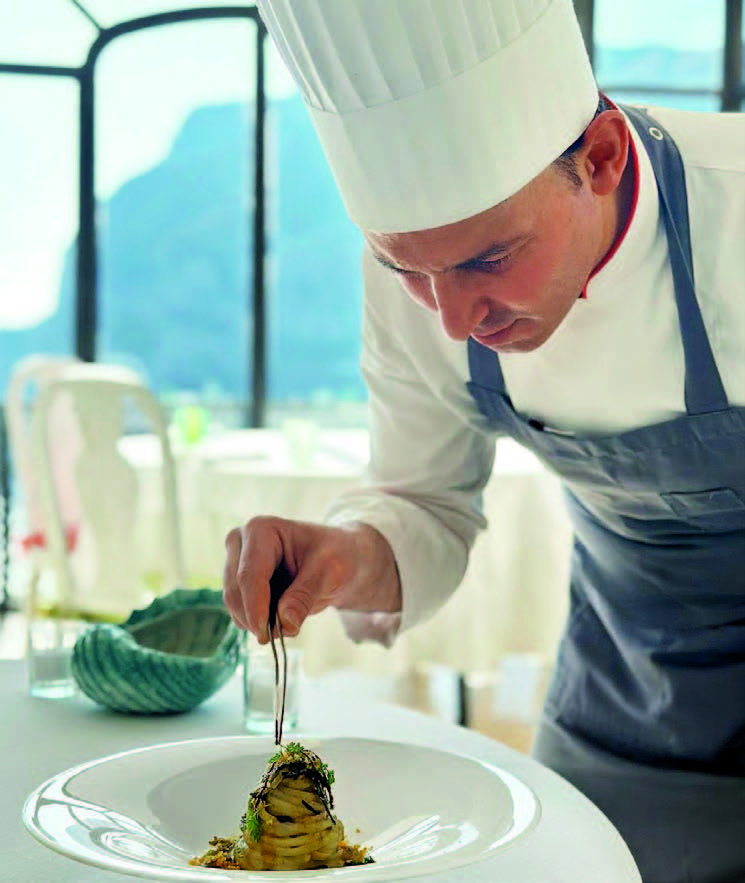
LUIGI LIONETTI
Executive chef
Le Monzù Restaurant Capri at puntatragara hotel
puntatragarahotel.it
@chefluigilionetti
Drawing on diversity
There are several things that set Italian cuisine apart from others worldwide. Two key factors adding to its distinctiveness are the diversity of the regions and the variety of ingredients found across the country. Regions with close connections to the rest of Italy tend to be well known for their rich culinary traditions. The most inspiring cuisines are those created using excellent raw materials. In this respect, seasonality plays a crucial role, with each ingredient having a natural life cycle and, therefore, making a significant difference in the dish.
Tapping into technology
I believe the secret to successfully combining the best of old and new when it comes to culinary techniques is to always make tradition your basis or starting point. It’s also crucial to have a thorough understanding of new techniques before introducing them into a process to prevent ingredient distortion and maintain a good balance. Of course, ancient techniques remain important, but new technologies are undoubtedly improving the sensory properties of ingredients, while achieving the same result in less time.
Health-conscious offerings
Italy is now a globalized country, influenced by various cuisines from around the world, ranging from those in the Far East and the Nordic region to other in Eastern Europe. In the future, we could see a greater focus on health in our cuisine, with more emphasis on the Mediterranean diet and lighter foods. Sustainability is also another factor growing in importance, given the number of small-scale farmers and breeders that are disappearing.
Complementing the cuisine
It’s important for wine to complement a dish without overpowering its delicacy. A good sommelier will select a wine with care and thought, ensuring it fulfills its role by enhancing the overall dining experience.
FUMIKO SAKAI
Michelin star chef
Palazzo Seneca*, Norcia, Italy
Palazzoseneca.com
@sfumiko
An appealing biodiversity
We are represented by an impressive biodiversity of products in the Mediterranean basin and in Italy, in particular. The global appeal of our biodiversity and the recipes linked to specific territories, climates and ecosystems, shaped by regional cuisine, help to make Italian cuisine unique on a worldwide scale. The artisanal preservation of certain species over the course of history has played a vital role here and, while many varieties are sadly disappearing, young individuals are working to counter this loss.
Retaining the preservation tradition
Our gastronomy has always been characterized by preservation, dating back to Roman times, with products like ‘garum’ (a fermented fish sauce). Our classic tomato passata, pickling certain vegetables or fruits during their peak season for consumption in winter, stems from a historical approach to avoid wasting precious resources. Preservation methods, including pickling, fermenting and various types of preserves, continue to define our culinary techniques and methods.
Rediscovering flavors
The recollection of flavors from childhood creates a thread connecting tradition to contemporary Italian cuisine. As our world evolves, scientific discoveries and technological advancements contribute to new techniques. Balancing tradition and innovation should involve remembering the taste, reviving old methods and incorporating new knowledge to refine and adjust. In terms of trends, fermentation is making a comeback and techniques like air-drying meats are gaining popularity. These methods reflect a resurgence of interest in ancient culinary practices.
Keeping it local
For wine, I recommend staying local, aligning the cuisine with regional wines that complement each other based on the local climate, ecosystem and soil characteristics.
The connection between local food and wine creates a genuine experience. Opting for natural wines enhances the authenticity of the Italian culinary and oenological experience, while respecting the environment and the product.
FRANCESA STARA
Chef de cuisine
Fradis Minoris
fradisminoris.it/prenota
@fra_stara
Regional respect
Italian cuisine stands out for its simplicity, the straightforwardness of its flavors and the respect for regional traditions. Among its many culinary traditions, I am most inspired by those that characterize the Campania region, which have shaped me since childhood, teaching me to love the flavors found there and execute recipes correctly. Seasonality also plays a fundamental role in Italian cuisine, since using products in their prime enhances the flavor. Doing what we can to shorten the food supply chain is essential, while associating a recipe with a specific time of the year adds a delightful touch to a culinary experience.
Maintaining authentic flavors Popular traditional Italian cooking techniques include long slow cooking in terracotta pans for legumes, braised dishes and various ragù. The use of wood-fired ovens for pizza and certain desserts like ‘pastiera’ is also crucial for authentic Italian flavors. I believe that true innovation lies in tradition. Understanding the places and people, and allowing them to reveal the character of the territory, helps to bring about an understanding of local products and preserve authenticity. Respecting nature should also be a priority. Current trends include serving high-quality local ingredients, alongside the use of quick and express cooking methods.
In addition, desserts are becoming less sweet, with an increasing use of fruits and vegetables in pastry.
Creating connections
With the diverse geographical expressions in Italian cuisine and wine, my advice is to pair a dish with a wine from the same region. This creates a visceral connection between the two. For instance, by pairing Campanian mozzarella with Asprinio d’Aversa, the rich, soft cheese and the fruity, citric bouquet of the wine complement each other perfectly.
CIRO SICIGNANO
Executive chef
Ristorante Lorelei
ristoranteloreleisorrento.com
@ciro_sicignano_chef
Passing down traditions
Italian cuisine is distinguished globally by its identity which, in turn, includes a unique identity for each region. This culture is ingrained in every household. From north to south and east to west, we carry a tradition deeply rooted in history, a narrative that has shaped one of the oldest stories in culinary arts. The commitment to preserving and passing down these traditions from generation to generation makes Italian cuisine truly distinctive and sought after. Personally, I find the cuisine of the south particularly inspiring, perhaps due to my origins. It’s not just about the diverse characteristics of its cuisine, but also the warmth in human relationships.
Retaining recognition
To innovate and create, one must always start with the roots of tradition. In my kitchen, every dish begins with a nod to tradition. Understanding authentic flavors, as passed down by grandmothers and mothers, forms the foundations. Balancing tradition and innovation, while respecting authenticity, presents challenges. I always aim to respect the ingredient, while innovating with cooking techniques, preservation methods and fermentations. The key is to innovate while preserving the essence of the ingredient, ensuring that its true taste is not compromised. The product on the plate should always retain recognition. If I can blindly recognize a dish and feel its authenticity, I consider it a success.
Rediscovering the past
In recent years, I’ve sensed a return to roots in cuisine – a rediscovery of the past, involving methods like fermentation and aging fish. Other trends include the use of ingredients from around the world, facilitated by globalization. Looking ahead, I see the future of Italian gastronomy including a more pronounced return to origins, especially to the authentic taste of the product.
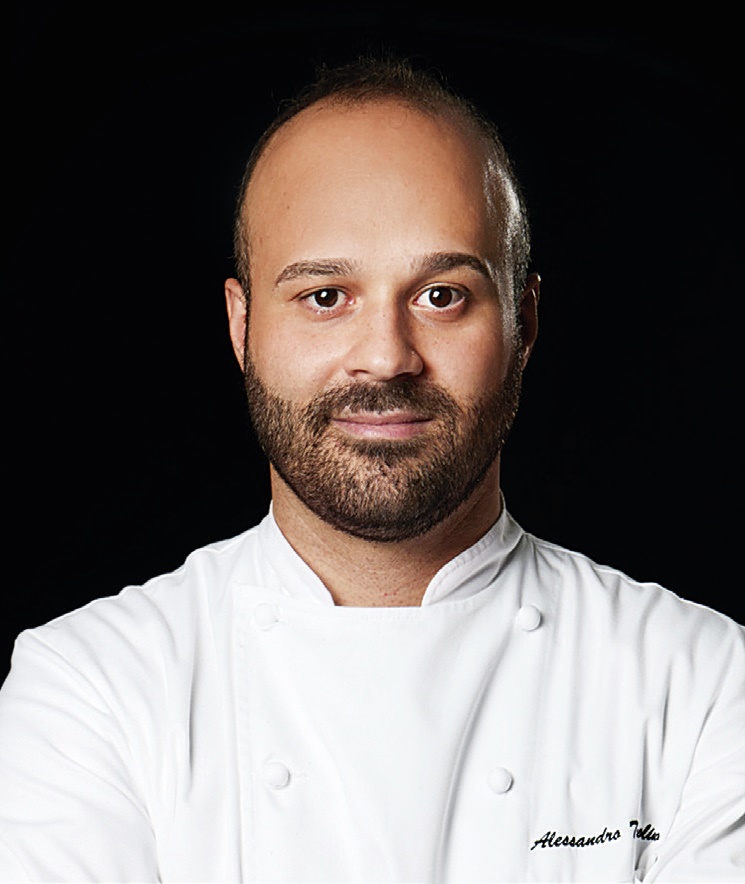
ALESSANDRO TORMOLINO
Executive chef
Sensi Restaurant
Sensiamalfi.it/en/alessandro-tormolino/
@alessandro_tormolino








